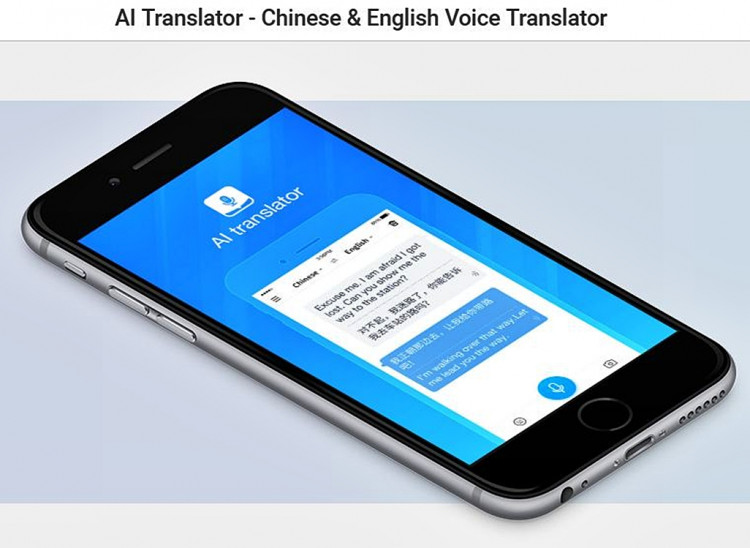Baidu, better known as China's largest and the world's second largest search engine, has released what it calls a "simultaneous translation tool" that can translate languages into the user's own language in real time.
Baidu's "AI Translator" is a free voice and text translation app that currently supports Chinese and English translation. Baidu claims this app is the most accurate Chinese and English translation software among all translation apps.
This artificial intelligence (AI)-powered tool uses natural language processing or the ability for machines to understand human speech. The first iteration of Baidu's simultaneous translation tool can translate written English into Chinese and German in real time.
The app is a direct challenge to Google, which a year ago released earbuds that can translate 40 languages in close to real time.
Baidu claims its system is the first with "anticipation capabilities and controllable latency." Its system does away with the long lag that often occurs when translating a written sentence into another language. Baidu says its simultaneous translation tool translates sentences almost instantly.
Within a few seconds, the system can routinely predict what topic a person is about to talk about. This ability allows it to address the latency arising from grammatical word order among different languages.
Tech pundits said the system is a breakthrough for Baidu. Apart from its huge internet presence, Baidu is also China's leading AI firm and one of the world leaders in this growing technology.
Baidu's AI-based "Apollo Project" is one of the world's leading autonomous driving and AI programs. Apollo, which is an open source system, has more than 100 global partners. Included in this list are Chinese firms BYD, ZTE and Dongfeng, Microsoft, Intel, Nvidia, Daimler AG, Grab, Ford, Hyundai, and Honda.
Developing AI demands tremendous amounts of data, and Baidu trained its AI on two million pairs of English and Chinese sentences. This massive input allows Baidu's digital interpreter to do near real-time translation from two languages that have very different sentence structures, said Liang Huang, principal scientist at Baidu.
Huang said Baidu trained its system to predict the English side given the Chinese side prefix. Baidu's digital translator can be adjusted for latency. This feature allows a user to set how much lag there is between a word being spoken and its translation.
It currently supports Chinese to English. Huang said the Baidu translator is "language neutral" and will eventually be able to translate other language pairs too.
Huang said Baidu plans to integrate its AI interpreter into its Wi-Fi translator unveiled earlier this year. Baidu will use this technology to translate speeches at its annual Baidu World Conference on Nov. 1 in Beijing.





